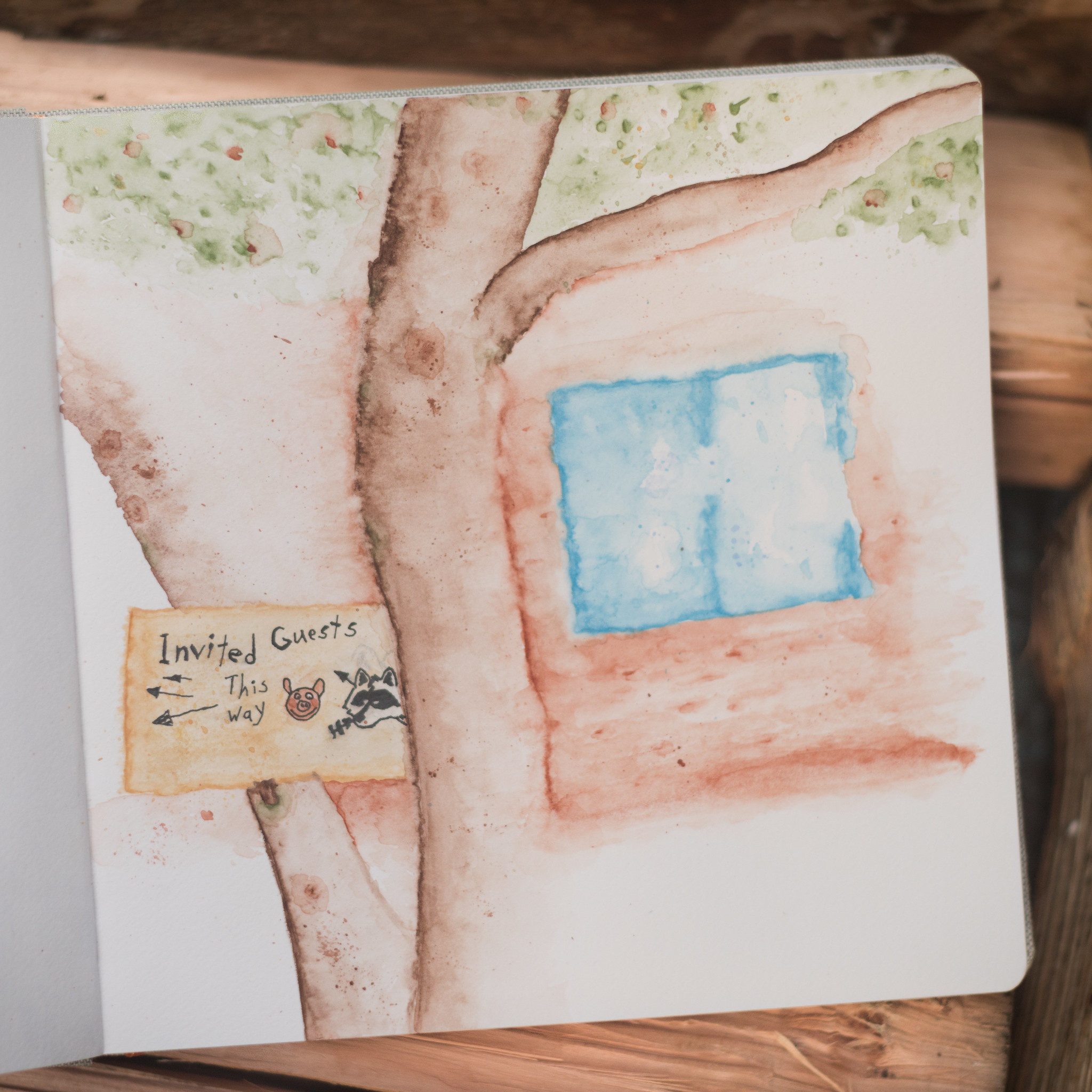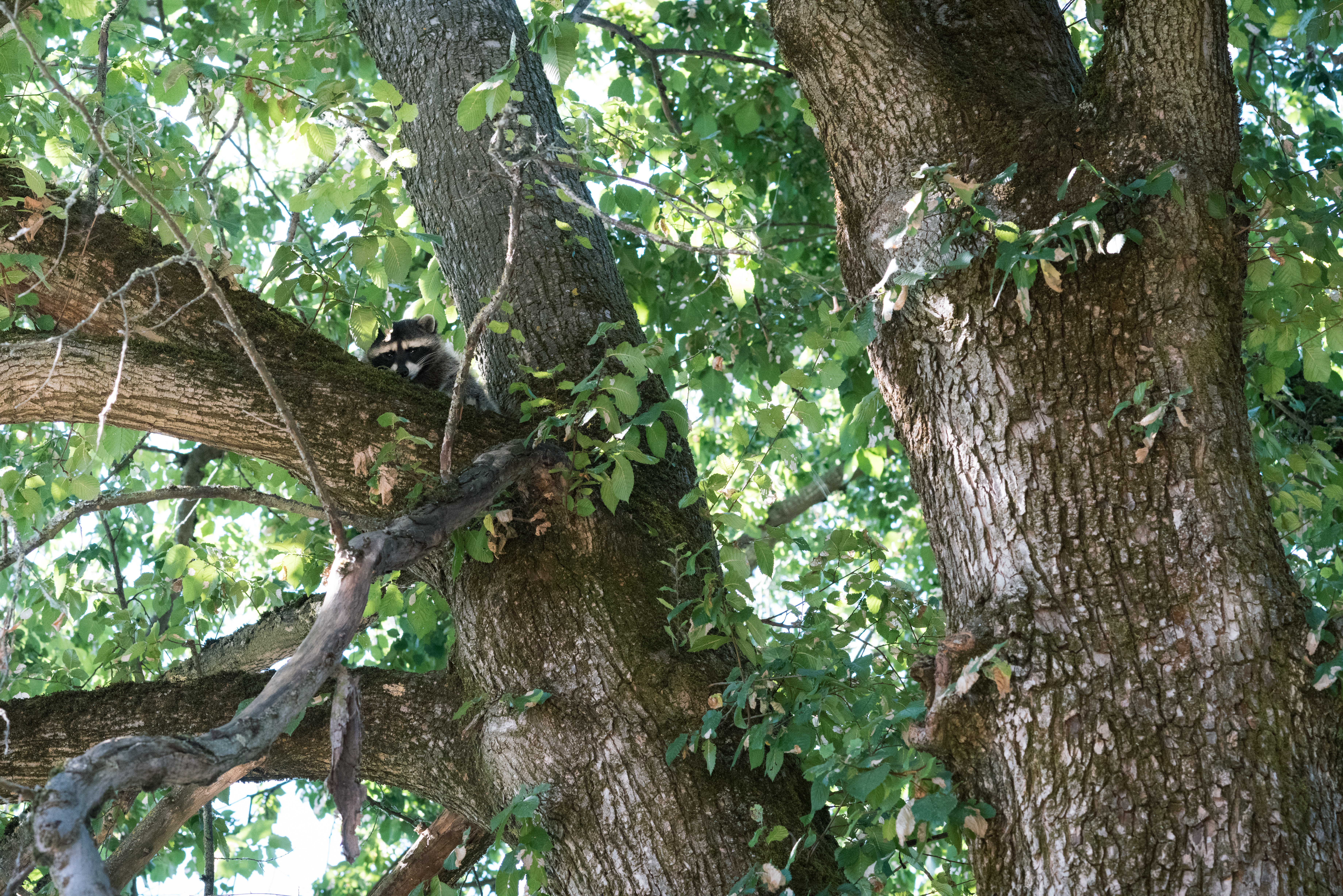The Beautiful Blur [October 4 2017]
Recently, I've had a few people near me talk about the Bates method to improve their vision. I remembered trying this when I was younger. At the time, my vision was deteriorating to a point where I couldn't read the board from the back rows in class but I refused to wear glasses. I don't remember how seriously I tried this but I eventually gave up. Back then, I don't think I would have had the behavioral tricks and experience to commit to an experiment and do it seriously.
So, triggered by those conversations about vision, I decided to do some more researching into the subject and eventually found out about endmyopia.org. The explanation of how myopia develops makes a lot of sense and there's a certain rewilding elegance to the process of reverting it: since the eyes adapt to stimulus, reverting is a process of slowly giving them the opposite stimulus to adapt back to a “normal” state.
I can't vouch for the approach yet because I'll be starting on the reduced long distance prescription in a few weeks and that's what will provide that opposite stimulus. Until then, it's just something that sounds promising. Still, the road to get to that reduced long distance prescription is compromised of several interesting habits that I think are worth talking about.
The main two habits will sound pretty simple and obvious but I'd like to talk about them for their side-benefits that I've come to greatly appreciate:
- Pay attention to your peripheral vision
- Take frequent breaks and go outside to do some distance vision
Peripheral vision
I've always been conscious that I had tunnel vision. I've had countless experiences of getting my head (thankfully my eyes are protected by glasses!) scratched by branches and not seeing things until they're right in front of me.
When it was time to start the habit of “observing” in the peripheral vision, the first thing I noticed is how much everything around me was alive. Sometimes it would just be hints like shadows of crows flying above. But also butterflies, bees, crows, jays, squirrels, ants, and, very importantly, leaves (and spiders, so many spiders!). Seeing leaves move (or not) with the wind got me to pay more attention to the weather too. Or maybe I should say paying more attention to the weather changes. Someone at Echoes in Time last summer said after several days of intense summer heat that he knew it would be cooler one day because the wind had changed the night before. I can't say that I get it now but it certainly makes a lot more sense to me and that would be much easier to do when you're observing the wind in your peripheral vision.
It's not a huge breakthrough finding but it's worth stating the obvious: peripheral vision is where you find awareness. If nothing else, you can observe things coming before they're in focus and shift it accordingly.

Frequent breaks outside
The idea with this one is that by not doing close-up/computer work for more than 20 minutes and going outside for a while, you develop eye strain awareness and also minimize the ciliary muscle locking up that can happen from prolonged close-up.
When I started doing this, I was still actively working full-time on the computer. I was using awareness to tell me when I needed to step outside. At first, I would end up in the backyard and frustratingly trying to find something to look at in the distance. The more I did this, the more at peace I became with the fact that maybe I should adjust my expectations and just watch leaves or branches in the tall Elm tree. After a while, I started noticing crows hiding on the far end of the Elm.
One day, I saw an unidentified mammal sleeping on a branch. At first, I could only see part of her back. But since I was coming back every 20 minutes, I eventually saw her from a different perspective as she had moved to another branch. A cute raccoon sleeping on a branch. I visited her every 20 minutes looking forward to the break instead of getting frustrated of having to interrupt whatever I was working on. Later, I took my camera with me and took a few pictures. She immediately woke up and I apologized for my rudeness. I had assumed that if the noise I was making was tolerable, the camera would be as well. But, apparently, the mechanical sound of the shutter was more disturbing than the sound of my voice of steps. We locked eyes for a minute and she eventually went back to sleep. I had made a mistake but I might have been forgiven.

This experience with observing patiently at a distance and scanning the landscape brought me calm, awareness (again) and connectedness. It also taught me some patience.
A few weeks later, you'd find me watching squirrels eat some acorns in the backyard. They seemed to be more used to close human contact and my little friends didn't mind me taking some pictures. But to get close, I had to just remain there for long enough to be part of the picture they were observing. None of this is new. I've heard about people having sit spot they regularly attend and that's very similar to how I've approached this habit of taking breaks.

Experimenting on fixing myopia might or might not bring me back clear vision. However, I think I can very confidently say this: the process to try to reverse it is bringing me back a sense of observation that I had been lost to me for incredibly long. This rich process is a subset of rewilding but it's also a perfect analogy for how the bigger rewilding can enrich our lives with the unexpected benefits of living through that process.
Things might be blurry in the transition but that bluriness can be beautiful too.